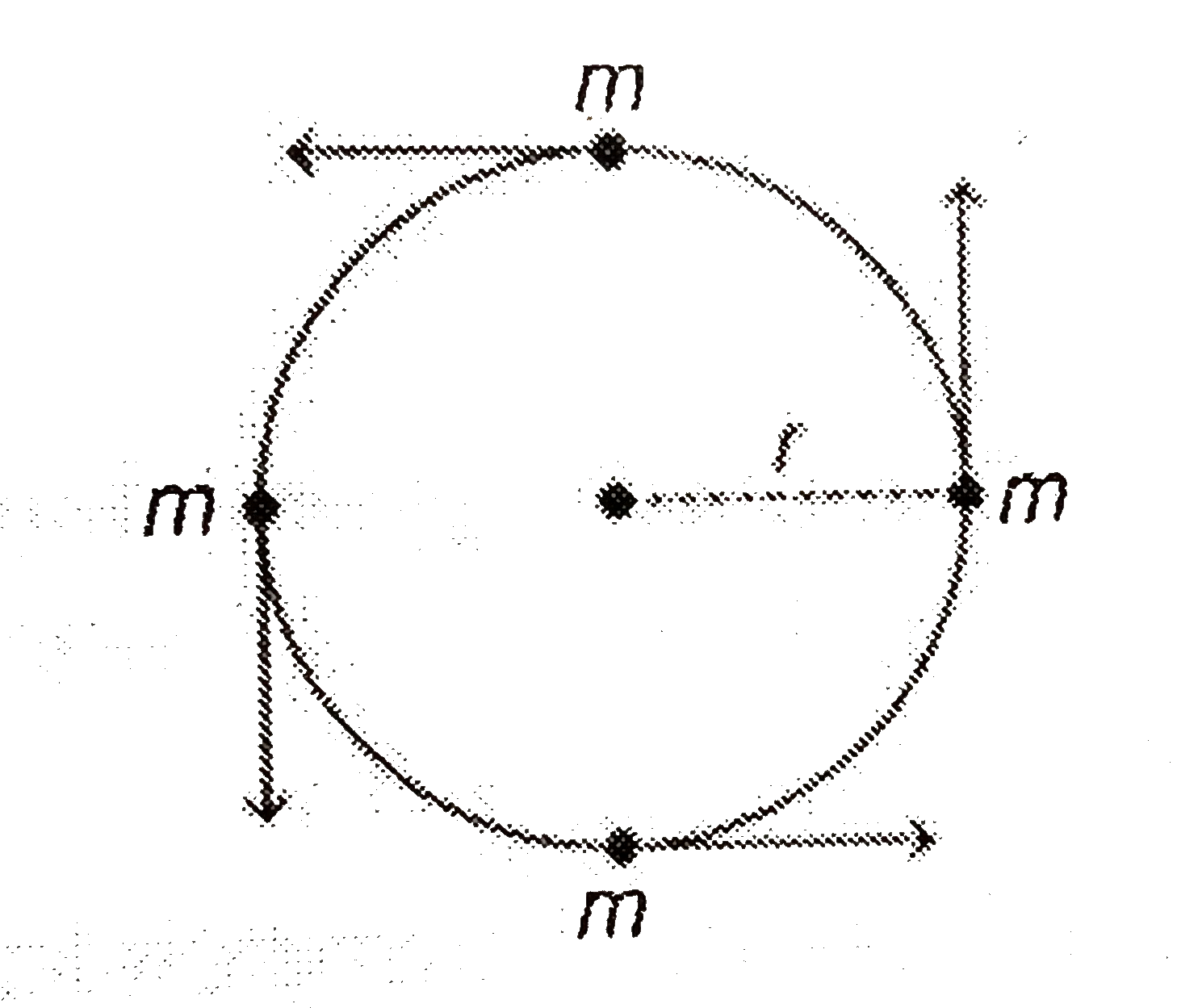A
B
C
D
Text Solution
Verified by Experts
The correct Answer is:
Topper's Solved these Questions
GRAVITATION
RESONANCE ENGLISH|Exercise EXERCISE-1 PART-3|2 VideosGRAVITATION
RESONANCE ENGLISH|Exercise EXERCISE-2 PART-1|15 VideosGRAVITATION
RESONANCE ENGLISH|Exercise EXERCISE-1 PART-1|9 VideosGEOMATRICAL OPTICS
RESONANCE ENGLISH|Exercise Advance level Problems|35 VideosNUCLEAR PHYSICS
RESONANCE ENGLISH|Exercise Advanced level solutions|16 Videos
Similar Questions
Explore conceptually related problems
RESONANCE ENGLISH-GRAVITATION-EXERCISE-1 PART-2
- Four similar particles of mass m are orbiting in a circle of radius r ...
Text Solution
|
- Two blocks of masses m each are hung from a balances as shown in the f...
Text Solution
|
- Three particales P,Q and R are placedd as per given Masses of P,Q and ...
Text Solution
|
- Three particle each of mass m, are located at the vertices of an equil...
Text Solution
|
- Let gravitation field in a space be given as E = - (k//r) If the refer...
Text Solution
|
- Gravitational field intensity at the centre of the semi circle formed ...
Text Solution
|
- Infinite number of bodies, each of mass 2kg are situated on X-axis at ...
Text Solution
|
- Two concentric shells of uniform density of mass M(1) and M(2) are sit...
Text Solution
|
- Figure show a hemispherical shell having uniform mass density The dire...
Text Solution
|
- Mass M is uniformly distributed only on curved surface of a thin hemis...
Text Solution
|
- A body starts from rest from a point distant r(0) from the centre of t...
Text Solution
|
- Three equal masses each of mass 'm' are placed at the three-corner of ...
Text Solution
|
- Three equal masses each of mass 'm' are placed at the three-corner of ...
Text Solution
|
- Three identical particles each of mass M are placed at the corners of ...
Text Solution
|
- Three equal masses each of mass 'm' are placed at the three-corner of ...
Text Solution
|
- A satellite is revolving round the earth in circular orbit
Text Solution
|
- An artificial satellite of the earth releases a packet. If air resista...
Text Solution
|
- Figure shows the variation of energy E with the orbit radius r of a sa...
Text Solution
|
- A planet of mass m moves around the sun of mass M in an elliptical orb...
Text Solution
|
- The escape velocity from the earth is 11.2km//s. If a body is to be pr...
Text Solution
|
